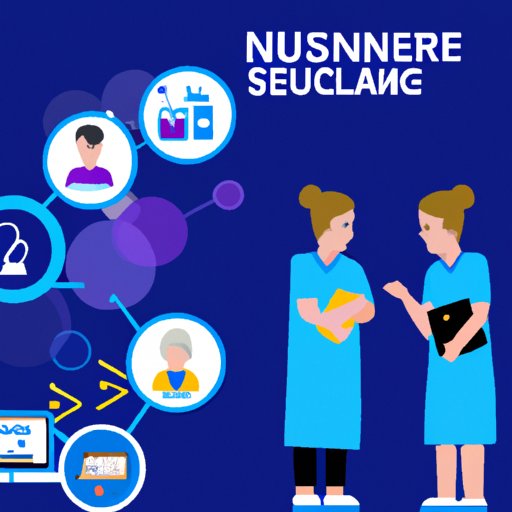Introduction
Nursing science is a branch of the medical sciences that focuses on the study of the provision of health care to individuals, families, and communities. It is an interdisciplinary field that incorporates knowledge from nursing, medicine, psychology, sociology, and other disciplines. The purpose of this article is to explore the foundations, core components, and impact of nursing science on healthcare outcomes.

Exploring the Foundations of Nursing Science
What is nursing science? According to the American Nurses Association (ANA), it is “the systematic study of the art and science of nursing and its related fields.” Nursing science seeks to understand the processes involved in providing quality patient care, as well as the factors that influence health outcomes. It also focuses on the development of new models of care, based on evidence-based practice, and the exploration of ethical issues in healthcare.
The role of nursing science in patient care and education is to provide a comprehensive understanding of the principles and practices of nursing. This includes knowledge of medical conditions, treatments, and medications, as well as the ability to assess and monitor patient progress. Nursing science also helps nurses develop effective communication skills, so they can collaborate with other healthcare professionals to deliver the best possible care.

Investigating the Core Components of Nursing Science
The core components of nursing science include clinical skills, knowledge of health conditions, and interpersonal communication. Clinical skills are essential for nurses to be able to accurately diagnose and treat patient conditions. They must also have a thorough understanding of different health conditions, so they can provide the most appropriate care. Finally, nurses must possess strong interpersonal communication skills, so they can effectively interact with patients and their families.
In addition to these core components, nursing science also emphasizes the importance of self-care and professional development. Self-care is important for nurses to stay healthy and energized, while professional development helps them stay up-to-date on the latest advances in the field. Professional development also enables nurses to develop leadership skills and hone their clinical expertise.
Examining the Impact of Nursing Science on Healthcare Outcomes
Nursing science has a significant impact on healthcare outcomes. Research has shown that nurses who are knowledgeable about the latest advancements in the field are more likely to provide higher quality care. This leads to improved patient outcomes and satisfaction, as well as cost-effective care.
A study published in the Journal of Nursing Care Quality found that when nurses had access to evidence-based resources, patient mortality rates decreased by 8%. Additionally, the study found that patient satisfaction scores increased by 10%. These results demonstrate the positive impact that nursing science can have on healthcare outcomes.

Exploring Current Research and Trends in Nursing Science
Current research and trends in nursing science focus on evidence-based practice, technology integration, and interprofessional collaboration. Evidence-based practice is the use of scientific evidence to inform the decisions made by healthcare providers. This helps ensure that the care provided is based on the most up-to-date information available.
Technology integration is becoming increasingly important in the field of nursing science. Technology can help nurses track patient data, communicate with other healthcare providers, and access evidence-based resources. Finally, interprofessional collaboration is essential for delivering the highest quality of care. Working together with other healthcare professionals allows nurses to draw on each other’s expertise and experience.
Conclusion
In conclusion, nursing science is an interdisciplinary field that focuses on the study of the provision of health care to individuals, families, and communities. It is comprised of several core components, such as clinical skills, knowledge of health conditions, and interpersonal communication. Nursing science has a significant impact on healthcare outcomes, leading to improved patient outcomes and satisfaction, as well as cost-effective care. Current research and trends in the field focus on evidence-based practice, technology integration, and interprofessional collaboration.
(Note: Is this article not meeting your expectations? Do you have knowledge or insights to share? Unlock new opportunities and expand your reach by joining our authors team. Click Registration to join us and share your expertise with our readers.)
